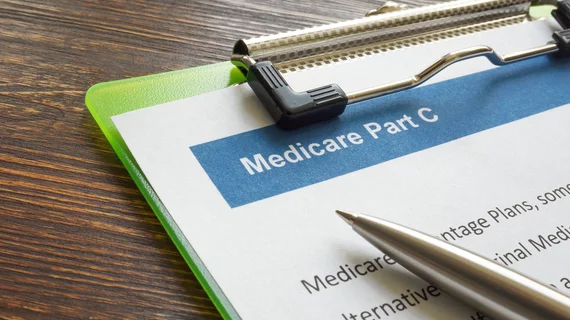Radiology provider joins growing number of institutions refusing to accept Medicare Advantage
A Nebraska radiology provider is joining a growing number of institutions refusing to accept Medicare Advantage, contending that the privatized plans are “bad for patients” and taxpayers.
North Platte-based Great Plains Health announced the decision May 16, with it set to take effect in 2025. The rural health system—which provides imaging at its main hospital and nearby outpatient imaging center, employing five radiologists—said it strives to “put the patient first.” But Medicare Advantage “does not align with that mission.”
Great Plains cited concerns including patient care, access and affordability. Nearly 45% of hospitals are considering ditching MA while another 16% have already done so, according to the Healthcare Financial Management Association.
“To put the patient first, we can no longer be under contract with a plan that causes significant delays in care, longer hospital stays and outright denials of care,” psychiatrist and Chief Medical Officer Narayana M. Koduri, MD, said May 16.
The decision also applies to Great Plains’ clinics and many independent practices. Altogether, the 116-bed regional referral center spans 34 counties with nearly 100 physicians across 30 medical specialties also including interventional radiology. In supporting the switch, Great Plains cited an October report from the Nebraska Hospital Association. About 90% of local hospitals report that MA plans negatively impact care, and over 92% said prior authorization requirements have led to delays in necessary care. Nearly one-third of Nebraska hospitals had already started refusing to contract with MA plans as of October, the survey found.
“Patient access to healthcare is eroding as some Medicare Advantage plans restrict access to health services by inappropriately denying covered services that are medically necessary, requiring unreasonable levels of documentation to demonstrate clinical appropriateness, and changing health plan rules in the middle of a contract year,” the association said.
Attorney Ed Gaines, with radiology vendor Zotec Partners, shared news of Great Plains Health’s decision on social media.
“This phenomenon of hospitals and clinicians dropping Medicare Advantage seems to be gaining speed and is broader across the country,” he wrote Tuesday.
Great Plains said it will not be scheduling MA patients for visits, including those previously seen as out-of-network. It’s encouraging individuals to opt into traditional Medicare during the upcoming open enrollment period. All will continue having access to emergency care at its ED.
The organization emphasized that its physicians agree with the decision, “sparked by the desire” to provide “seamless care.”
“I know my patients on a personal level, and I have cared for some patients for decades, so when I order care that Medicare Advantage outright denies, it is frustrating,” radiation oncologist Todd E. Hlavaty, MD, chair of the organization’s Finance and Payer Committee, said in the announcement. “Medicare Advantage undermines my expertise as a physician and disregards my patients’ unique medical needs. I believe traditional Medicare is the best option.”
CMS released the 2025 Medicare Advantage rate announcement on April 1, projecting payments next year of between $500 billion and $600 billion. That represents a roughly 3.7% increase from 2024, the American College of Radiology reported last month.

